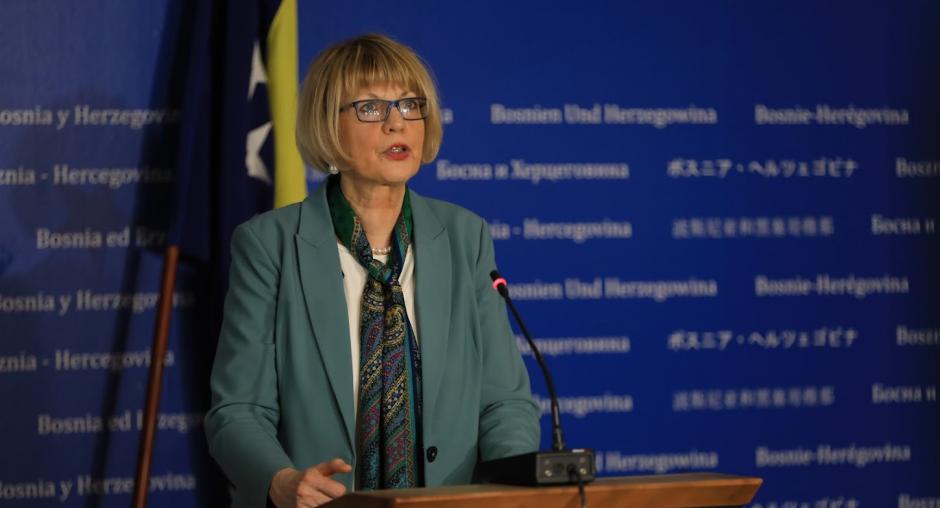Pressing need to harmonize laws with international standards underscored at Conference on the Elimination of Gender-Based Violence

SARAJEVO, 16 May 2024 – The Third Review Conference on the Elimination of Gender-Based Violence, held yesterday in Sarajevo and inaugurated by the OSCE Secretary General Helga Maria Schmid, emphasized the need for harmonizing laws with international standards and ensuring their full implementation.
The conference gathered representatives from state, entity and cantonal authorities, and authorities of the Brčko District of Bosnia and Herzegovina, alongside representatives from gender equality institutions and the High Judicial and Prosecutorial Council of Bosnia and Herzegovina, and aimed to strengthen dialogue and agree on further actions to combat gender-based violence.
An OSCE-led Survey on the Security and Safety of Women in BiH revealed that almost 50 percent of women have experienced some form of violence in their lifetime, and that many women do not recognize aggressive behaviour such as slapping or pushing as violence, viewing them instead as a normal part of a relationship.
The Secretary General emphasized the importance of victim-centred criminal justice responses to gender-based violence for the safety of all women, their families, and society as a whole.
“We have seen spikes in gender-based and domestic violence in many countries all over the world. Recent femicides in Bosnia and Herzegovina leave me shocked. We need to tackle this jointly, bringing in civil society and victims’ rights groups, to put an end to these abhorrent crimes now. I am proud the OSCE, and especially our Mission in Bosnia and Herzegovina, is contributing to this. Ultimately, everyone will benefit from this, because women’s rights are human rights,” said Secretary General Schmid.
The conference highlighted that while efforts are underway in the Federation of Bosnia and Herzegovina, Republika Srpska, and Brčko District of BiH to strengthen legislation and enhance protection against gender-based and domestic violence, simply improving legislation is not enough. Rather, there is a pressing need for full implementation of the laws, appropriate punishments for perpetrators, and timely support and protection for victims.
The OSCE calls for systematic approaches and targeted efforts in all these areas so that access to genuine physical, psychological, social, and economic security is available to all. The Organization remains committed to supporting authorities in Bosnia and Herzegovina in addressing impunity and gaps in protection, responsiveness, and other areas that ultimately silence victims and cost lives.
